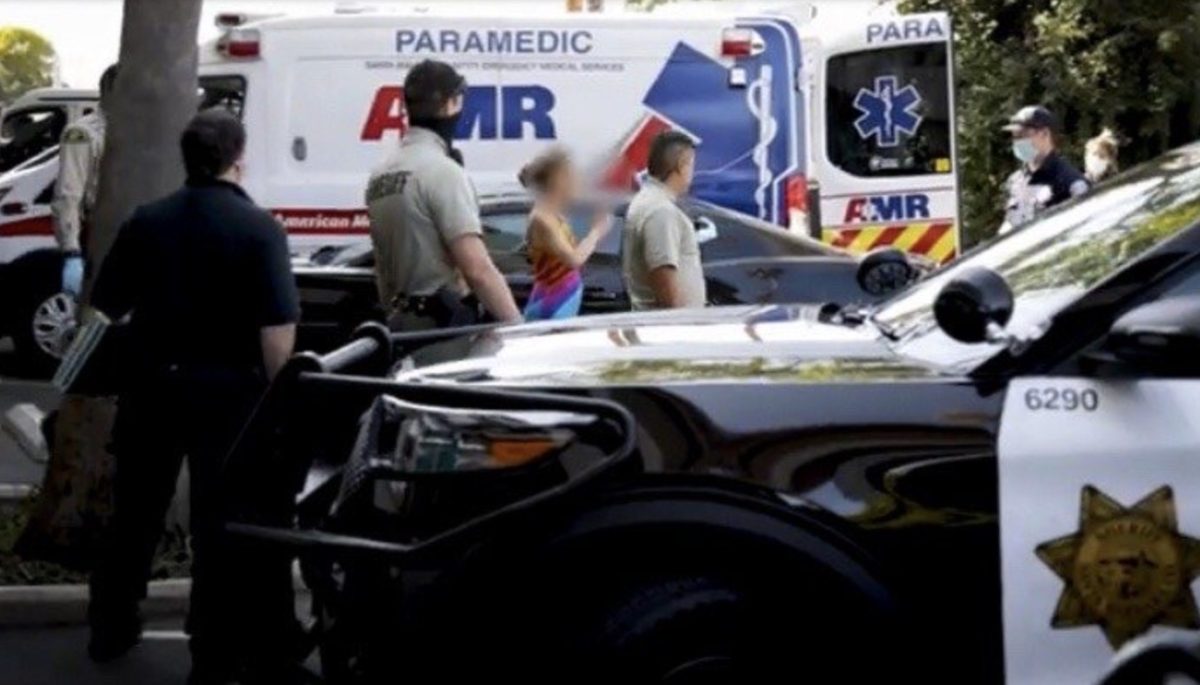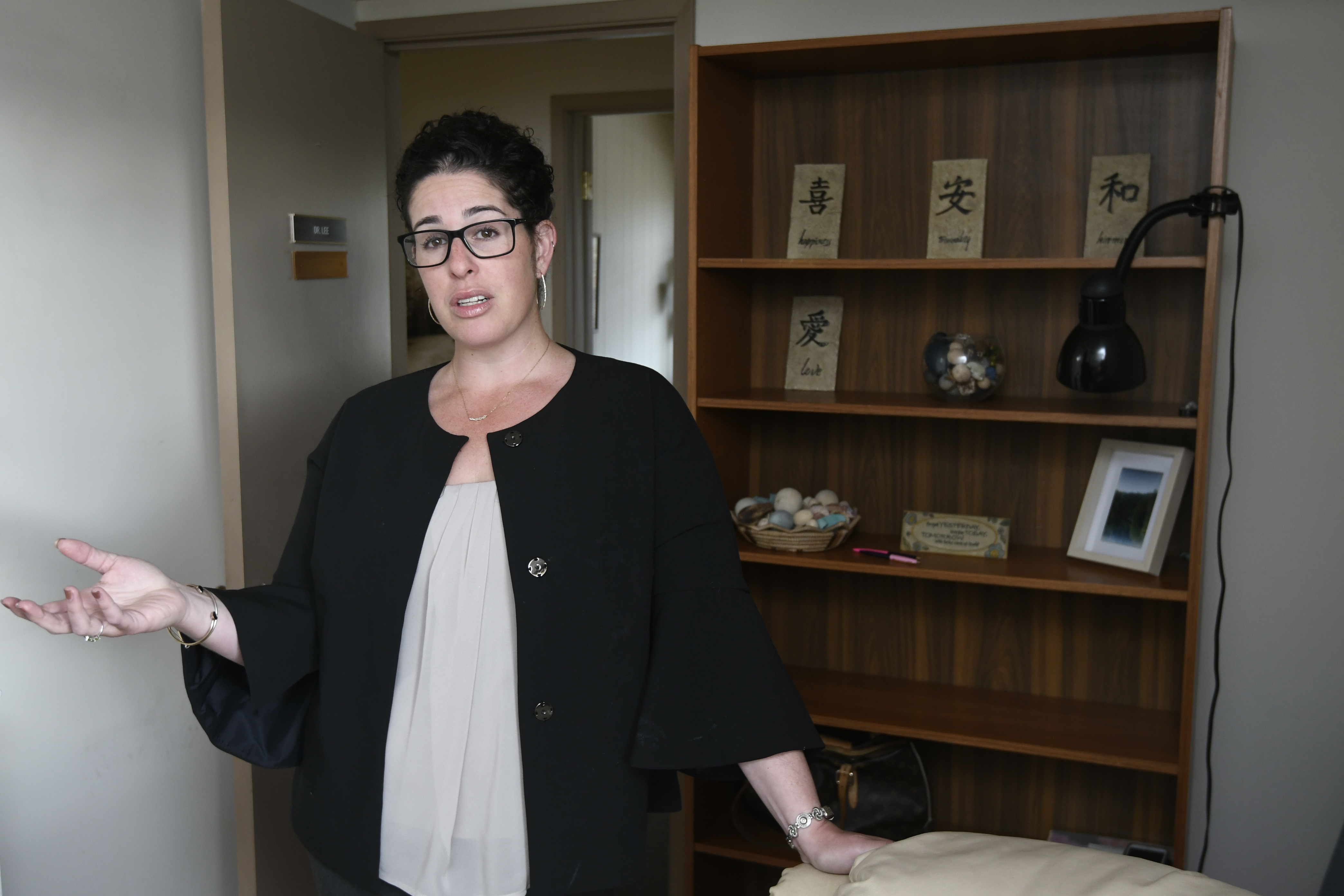5150 Powers Expanded in Santa Barbara County for Three-Month Pilot Project
Sheriff’s Deputies Assigned to Co-Response Teams Authorized to Determine If At-Risk Individual Should Be Placed Under Involuntary Psychiatric Holds

[Updated: Feb. 1, 2023, 9:43pm]
For decades, Santa Barbara held the distinction of being the only county in California in which law enforcement officers were not empowered or authorized to issue 5150 holds on individuals they deemed to pose an imminent risk to either themselves or others. As of February 1, that’s changing. Sort of.
That date marks the start of a three-month pilot project approved to amass the data needed to determine what the impacts of such a change would be and if the actual need justified such an expansion of law enforcement power when dealing with people experiencing mental health crises. For those three months, the sheriff’s deputies assigned to the three co-response teams in Santa Barbara County will be authorized to make 5150 determinations.
Co-response teams pair law enforcement officers with mental health case workers in responding to acute mental health calls for service. Behavioral Wellness administrators in Santa Barbara have traditionally opposed expanding the 5150 authority to law enforcement. In Santa Barbara, there are only 16 beds in the county’s Psychiatric Health Facility, a key shortcoming that’s been highlighted in numerous Grand Jury reports over the years.
“Without proper planning, a blanket authorization for all law enforcement could result in unintended consequences,” stated Suzanne Grimmesey of the county’s Behavioral Wellness Department, “such as overwhelming the emergency departments of hospitals.”
Grimmesey said Behavioral Wellness would be open to considering a pilot project that authorized law enforcement to issue 5150 findings for law enforcement officers working overnight shifts. That’s in part because Behavioral Wellness is finding it challenging to maintain staffing levels for crisis service staff, especially those working late-night shifts.
In 2021, there were 1,130 5150 holds issued in Santa Barbara County. In 2022, the number was 1,597. Mental-health advocates have long contended that many these never get bed placement as the state law requires and cite the county’s acute shortage of acute care beds as the reason.

Leading the charge in favor of this expansion has been Dr. Cherylynn Lee, who runs the Sheriff’s Office program for co-response and crisis intervention training for law enforcement officers throughout the entire county. By authorizing deputies to make “probable cause” findings for 5150 holds, Lee said, more people experiencing acute psychiatric distress will now get sent to the nearest hospital emergency room quicker, where they will receive psychiatric attention sooner. People experiencing traditional medical emergencies don’t have to wait to be dispatched via AMR to the nearest hospital, she noted.
“People experiencing mental health emergencies should be treated no differently,” she said.
Lee noted that in the past six months, Santa Barbara’s County Sheriff’s dispatchers receive 350-5,000 mental-health crisis calls a month. The acuity of these crises, she added, are also getting more intense.
“We’re seeing more cases of violence and more suicide attempts,” she said.
The problem with the status quo, Lee said, is that sometimes it takes a couple of hours for a mobile crisis clinician from the Behavioral Wellness department to show up to a crisis call. That’s a couple of hours, Lee said, when the person involved is not getting treatment and a couple of hours when a sheriff’s deputy has to remain with the subject of a crisis call and not be able to respond to other calls for service.
“When I started seven years ago, this was a frequent occurrence,” Lee said. “It’s much better now. But it remains an ongoing problem.”
Lee acknowledged it’s uncertain what impact the change will have on the number of 5150 holds issued. It’s likely, however, that the number will increase, she said. Law enforcement deputies, she noted, do not have access to the personal medical records that mental-health clinicians responding to calls for service have. Instead, they will have to make “probable cause” decisions based on what they see with their own eyes and any personal familiarity they may have with the parties involved. All that, Lee said, will be thoroughly scrutinized during the trial process.
Lee explained that law enforcement deputies will be authorized to make such calls only if they are part of an existing co-response team and if they have received 40 hours of crisis intervention training. There are currently only three such teams and only three deputies assigned to them. If the deputies are patrolling with a mental-health clinician, the deputies will not be authorized to issue a probable cause finding; in such circumstances, that call will be made by the clinician. But if the clinician is not available, then the deputies will be empowered to make the call.
Mental-health advocates have long bristled that Santa Barbara is the only county — at least since the early 1980s — in which law enforcement officials have been barred by practice and policy from making such mental-health determinations. Driving Santa Barbara’s singularity here is the paucity of acute care beds available at the county’s Psychiatric Health Facility — just 16.
The demand for acute care beds has grown markedly in recent years, and the strain this has placed on local emergency rooms has been significant. Only in the last five years have Behavioral Wellness administrators relented and agreed to allow emergency room doctors to make 5150 calls. Last year, the Grand Jury issued a report concluding that law enforcement should be empowered to do the same.
Lee has no illusion that the number of available beds will magically increase or that the broader shortages regarding mental health treatment will be soon resolved. “I just think it makes a lot more sense to get these people into a hospital where they can see a psychiatrist, instead of locking them up in the county jail,” she said. “I’m very excited. We’re moving in the right direction. It’s a good day.”
Support the Santa Barbara Independent through a long-term or a single contribution.




You must be logged in to post a comment.